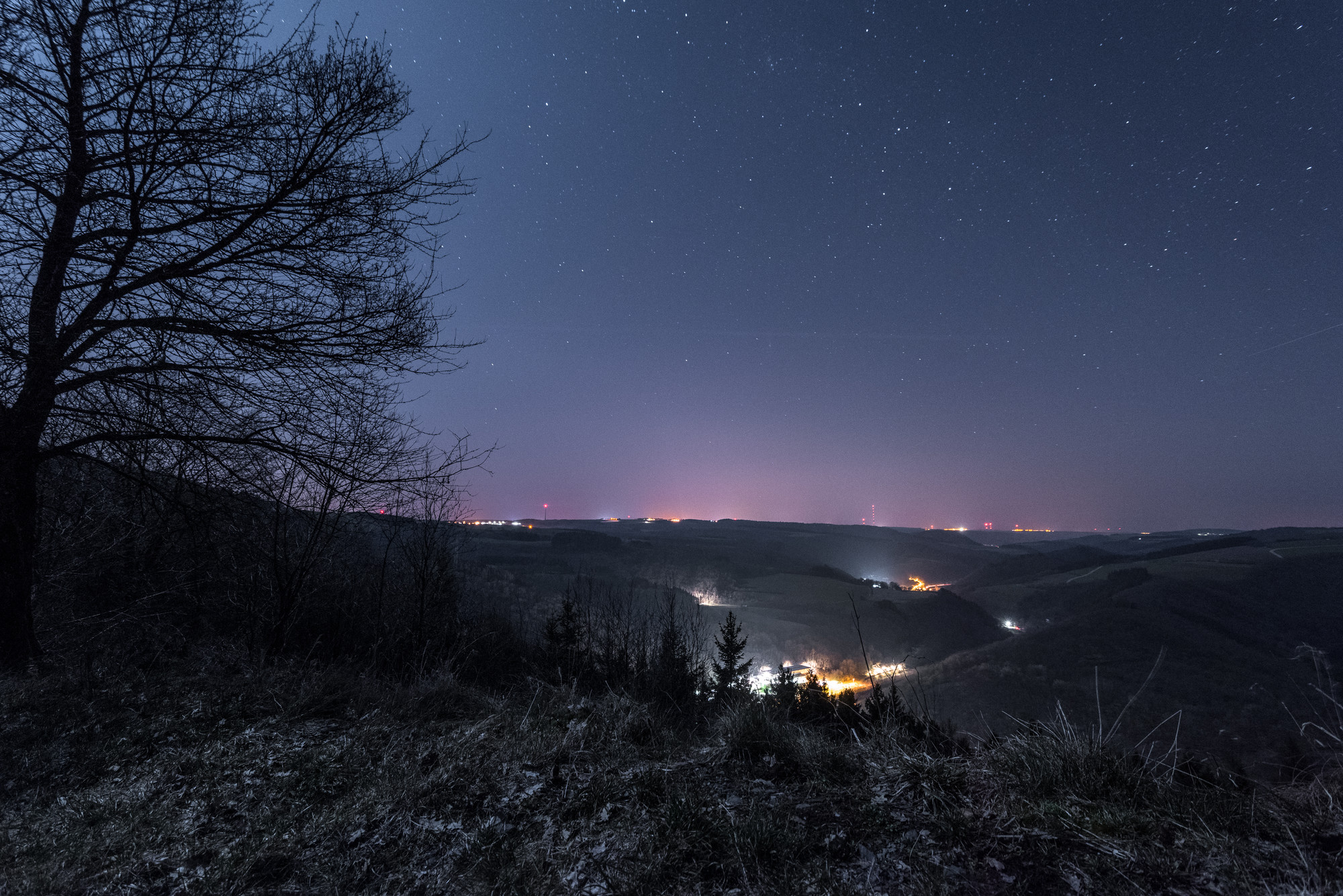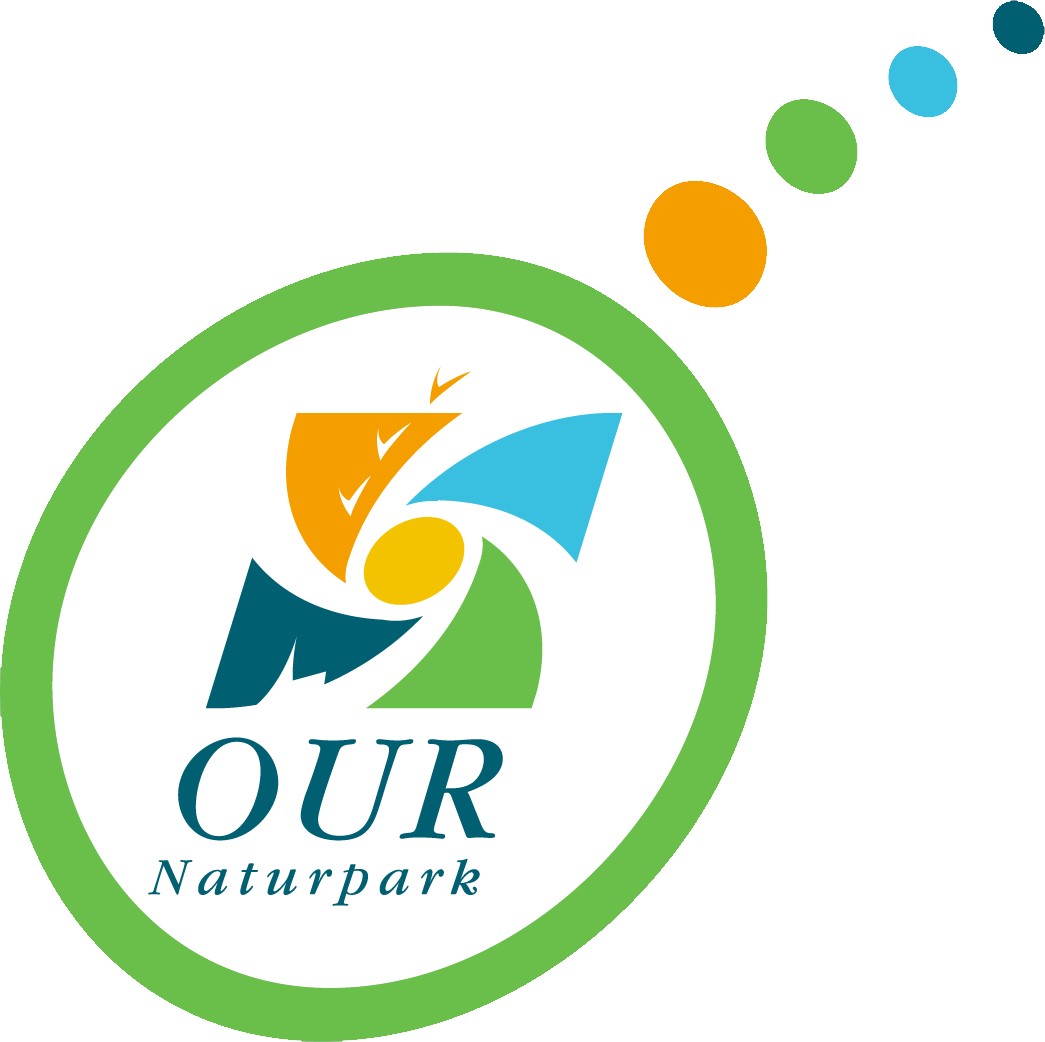Case Study
INTERREG Europe NIGHT LIGHT Improving regional policies to reduce light pollution and protect and valorise dark night skies.
Contact name
Laurent Spithoven
Institution name
Nature Park Our
Region & country
North of Luxembourg, named Eislek
Summary
NIGHT LIGHT Project partners:
– Province of Fryslân – Lead Partner
– Hajdú-Bihar County Government (HU)
– Avila County Council (ES)
– Nature Park Our (LU)
– Samsø Energy Academy (DK)
– BSC, Business support centre Ltd. (SI)
– Basilicata Region (IT)
– Matera-Basilicata 2019 Foundation (IT)
– Island Government of La Palma (ES)
The project was planned to introduce packages of regional policy measures for each of the partner regions that will result in a lasting reduction of light pollution, the designation of nature areas where dark skies are protected and the introduction of new services and facilities to attract eco-tourism to these dark sky areas.

Light pollution in the Nature Park Our
Pol Bourkel / Naturpark Our
Background of the project
Awareness of the ecological importance of avoiding light pollution is limited among inhabitants and communities in the region. Coordinated action, with local, regional and national agents, is needed to reduce light pollution effects on landscape and nature in the Nature Park Our and may allow inhabitants and visitors in future to once again enjoy natural darkness at night.
Luxembourg’s landscape is the most fragmented in Europe (European Environmental Agency, 2009). Growing light pollution from urban areas and infrastructure across the territory affects the Nature Park Our and dark skies are becoming more and more uncommon in the area. For the 8 municipalities of the region artificial lighting of towns and settlements at night in the rural landscape is an important issue, because costs of public lighting, often account for up to 25% of their municipal budgets.
Solution and actions taken
Through interregional learning and regional stakeholder mobilization, the Nature Park Our aims to improve the national Climate Pact through the development of new projects to:
- increase public engagement in preventing light pollution and protecting dark skies;
- reduce light emissions in the municipalities;
- facilitate sustainable dark-sky tourism developments in the region (NATURA2000 areas).
A spin-off effect is that these projects also make a positive contribution to regional energy efficiency.
During Phase 1 of the project (2017-2019), an interregional learning and regional stakeholder mobilization within the NIGHT LIGHT project allowed stakeholders in the Nature Park Our to identify proven practices from other EU regions and design an action plan for reducing light emissions from local municipalities (which was officially adopted by the Nature Park Our in February 2020).
Other institutions or parties involved
- Municipalities of the Nature Park Our
- Ministry of the Environment, Climate and Sustainable Development
- Ministry of Energy and Spatial Planning
- Ministry of the Economy
- National Roads Administration
- Nature and Forest Agency
- Public Building Administration
- Myenergy GIE
- National Sites and Monuments Service
- SICLER
- Nature Park Upper-Sûre
- Guichet unique PME (One-stop shop for SMEs)
- Éislek Regional Tourist Office
- Amateur Astronomers of Luxembourg
Results
- 20 local, regional and national institutions and organizations involved
- All the 8 member municipalities of the Nature Park Our involved
- Establishment of a neutral regional lighting advice center
- Implementation of the regional awareness and information campaign of the festival NIGHT, Light & more
- Implementation of a digital inventory of all public infrastructures for functional lighting
- Ongoing implementation of 8 pilot projects to reduce light pollution in the municipalities
Challenges
The greatest difficulty, especially at the beginning of the project, was the transmission of the rather unknown and highly-complex topic of light pollution. Therefore, an intensive exchange of information and the involvement of foreign experts in the field was necessary.
Lessons learned
- The importance and added value of an interregional European exchange
- The need for professional support from experts
- The importance of a clearly-structured approach to setting up, implementing and evaluating a project
- The need to actively involve political stakeholders
- The use of neutral information and transparent communication as a pillar of the project
- Benefits of public awareness of the need for environmental and climate protection
Contact name
Laurent Spithoven
Institution name
Nature Park Our
Website(s)
